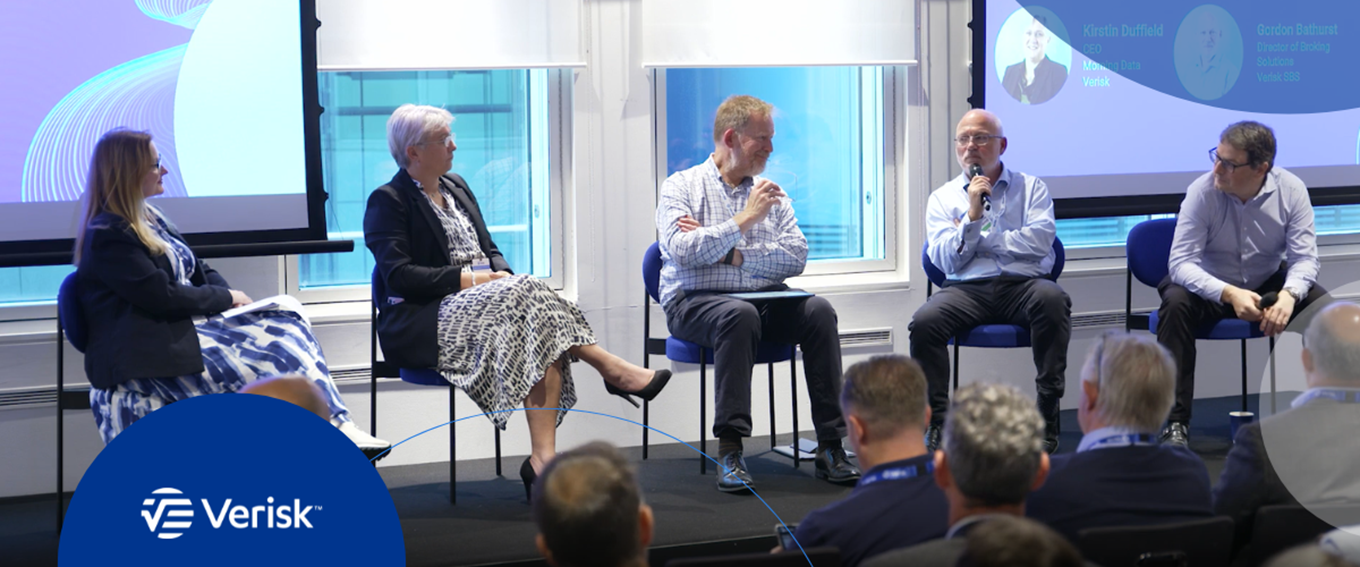What Will Broking Look Like in Three Years?
News -- 23 September 2024
Author: Marketing

At the 2024 Verisk Insurance Conference in London, one of the key panel sessions What Will Broking Look Like in Three Years? discussed how the emergence of new technology and integrated solutions will enable greater efficiencies and is continuing to shape the way brokers work and clients buy insurance.
The session was moderated by Claire-Louise Grant, Market Solutions SME at Verisk SBS, and featured insights from industry leaders: Gordon Bathurst, director of broking solutions at Verisk SBS, Marcus Broome, chief platform officer at Whitespace, Kirstin Duffield, CEO of Morning Data and Anthony Siggers, digital leader at Marsh Specialty UK.
The Need for a Data-First Approach
Anthony Siggers highlighted significant inefficiencies in the current trading system, which relies heavily on exchanging unstructured documents. He emphasised that this outdated method leads to redundant activities, such as the continuous rekeying of information. “We must digitise the submission process,” Siggers said. “We have to describe our client risks through data, not through documents, and then we exchange that with the marketplace. The marketplace can then consume that data without having to go through this manual extraction process of data from the documents”. He noted that the technology, appetite and momentum required to drive this transformation is already in place.
A Shift Toward Data Integration
Marcus Broome observed a seismic shift in the market’s approach, with organisations increasingly recognising the value of data within their operations. “As soon as that data is created, and it’s available, it can be read. It can be used in other places. It can be updated. It can be controlled.”
Gordon Bathurst echoed this sentiment, emphasising the growing desire within broking houses to integrate their internal systems. “When submissions are received, they should flow directly into the brokers workbench or CRM system.” He also stressed the importance of standardising data formats, pointing out that the London Market must work collectively to define these standards to facilitate seamless data integration.
Kirstin Duffield agreed, advocating for a proactive approach to adopting a data-first mindset. “We shouldn’t be frightened of data-first, but we do need to set some boundaries.” Duffield highlighted that this shift is not just cultural but is driven by a growing hunger in the market for data-first capabilities.
Optimism for a Digital Future
Looking ahead, the panelists expressed optimism about the digital future of the London Market. Siggers described the current period as an existential moment for the market, noting that both brokers and insurers are increasingly aware of the need for change to keep London relevant. By harnessing data, the London Market can gain a competitive edge and secure its position as a global leader in insurance.